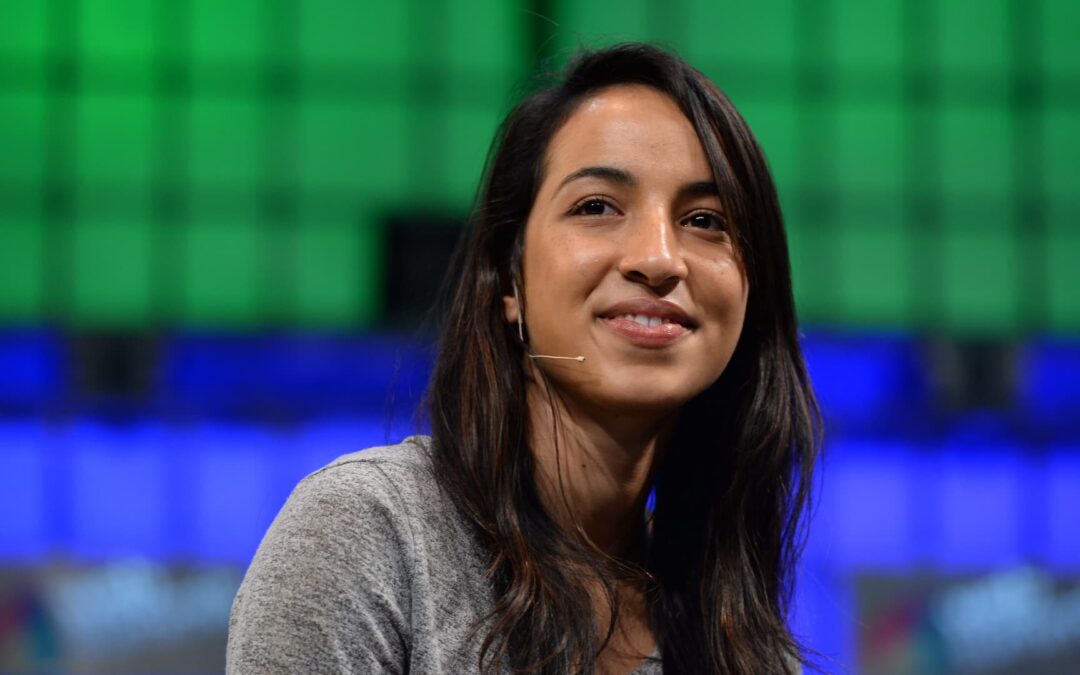Noor Siddiqui, founder and CEO of Orchid, during the web summit for careers during Day 2 of the 2014 Web Summit in Dublin, Ireland, Nov. 5, 2014.
Stephen McCarthy | Getty Images
Reproductive technology startup Orchid on Tuesday announced a comprehensive new genetic test that may help many prospective parents across the U.S. breathe a little easier.
The company is launching the first commercially available whole genome sequencing report for embryos, designed for couples undergoing in vitro fertilization, which is a type of treatment for people experiencing infertility or who are at risk of passing on genetic problems.
With IVF, after a woman has had around two weeks of daily hormone injections, her mature eggs are extracted and fertilized in a lab, and the viable embryos are later transferred into the uterus.
Orchid said its new test will help couples identify whether their embryos present genetic risks such as birth defects, neurodevelopmental disorders, chromosomal abnormalities, or pediatric and adult-onset cancers that were previously only detectable after birth.
“This is a major advance in the amount of information parents can have,” Noor Siddiqui, Orchid’s founder and CEO, told CNBC in an interview. “The way that you can use that information is really up to you, but it gives a lot more control and confidence into a process that, for all of history, has just been totally left to chance.”
Orchid’s technology sequences more than 99% of an embryo’s genome, while existing tests typically read around .25%, the company said in a release.
IVF is a taxing process that can cost an average of more than $12,000 in the U.S., according to the Institute for Reproductive Health. Success is not guaranteed, and some people go through multiple rounds of IVF before a pregnancy develops.
Orchid’s genetic test will cost couples an additional $2,500 per embryo sequenced, but it does not add any new steps or risks to the IVF process, Siddiqui said. She added that the cost of the report should come down as the company is able to scale up its operations and introduce more automation.
“We want to make this something that’s accessible to everyone,” Siddiqui said.
Beginning Tuesday, Orchid’s technology will be available at IVF clinics in major cities such as Los Angeles, Chicago, Miami and Austin, and Siddiqui said Orchid can be made available at additional clinics at the request of patients.
Couples will receive their report back from Orchid after about three weeks, the company said, and a board-certified genetic counselor will help them understand the results.
Orchid’s whole genome embryo report
Courtesy: Orchid
Orchid has secured $12 million in funding from investors such as Prometheus Fund and Refactor Capital. Anne Wojcicki, the co-founder and CEO of 23andMe; Dylan Field, the co-founder and CEO of Figma; Fidji Simo, the CEO of Instacart; Brian Armstrong, the co-founder CEO of Coinbase, and others are also backers.
For many hopeful parents, the peace of mind is worth Orchid’s steep price.
Roshan George, a 35-year-old engineer in San Francisco, began the IVF process with his wife, Julie, in the fall.
George said they were feeling some anxiety about having a baby at an older age, and their nerves were amplified after their IVF clinic discovered they are both carriers for nonsyndromic hearing loss, which can result in a partial or total loss of hearing.
George had heard of Orchid through some friends, he said, and the couple decided to sequence all three of their viable embryos with the company. He said getting the embryos tested was very straightforward, and when the results came back, they discovered that two out of the three embryos were healthy.
“We were super relieved right off the bat,” George told CNBC in an interview. “That was very gratifying to hear.”
“Just having some degree of certainty — you’re going to make sure they’re not sick when they’re born and all that sort of stuff — it’s a huge amount of anxiety that’s been lifted off,” George said.
George Church, a professor of genetics at Harvard Medical School, is an investor and an adviser at Orchid. Church developed the first direct genome sequencing method, he said, and Orchid’s technology will give parents the ability to access a hundred times more information about their baby than they could attain previously.
Church said it is “perfectly logical” for parents to care about helping their children, whether it pertains to their genetic health, the quality of their food or whether they get enough sleep and exercise.
He added that people often think that genetic risks don’t apply to them, or that there’s nothing they can do if something is wrong. But with Orchid, Church said parents have the detailed information they need to make informed decisions.
“If you went to Las Vegas with a 97% chance of winning, you would definitely go to Las Vegas,” Church told CNBC in an interview. “But it’s different when you’re talking about quarters as opposed to children.”
Orchid’s primary focus after the launch Tuesday will be on scaling up its technology and making it more accessible, Siddiqui said.
She said Orchid has spent an “enormous amount of effort” identifying the mutations that will cause severe disease during pregnancy or early childhood or result in serious chronic conditions. She wanted to ensure the company is able to provide parents with information that is “super meaningful.”
“I think this has the potential to totally redefine reproduction,” Siddiqui said. “I just think that’s really exciting to be able to make people more confident about one of the most important decisions of their life, and to give them a little bit more control.”







